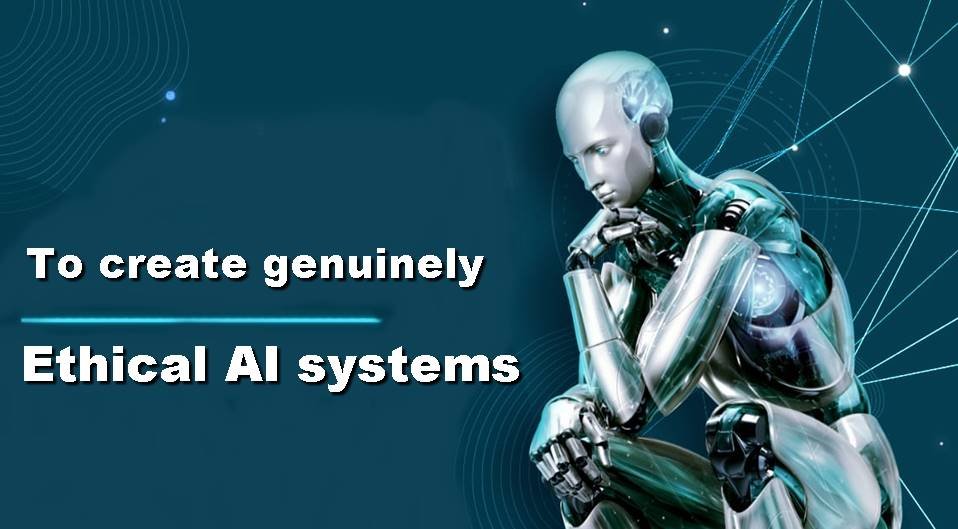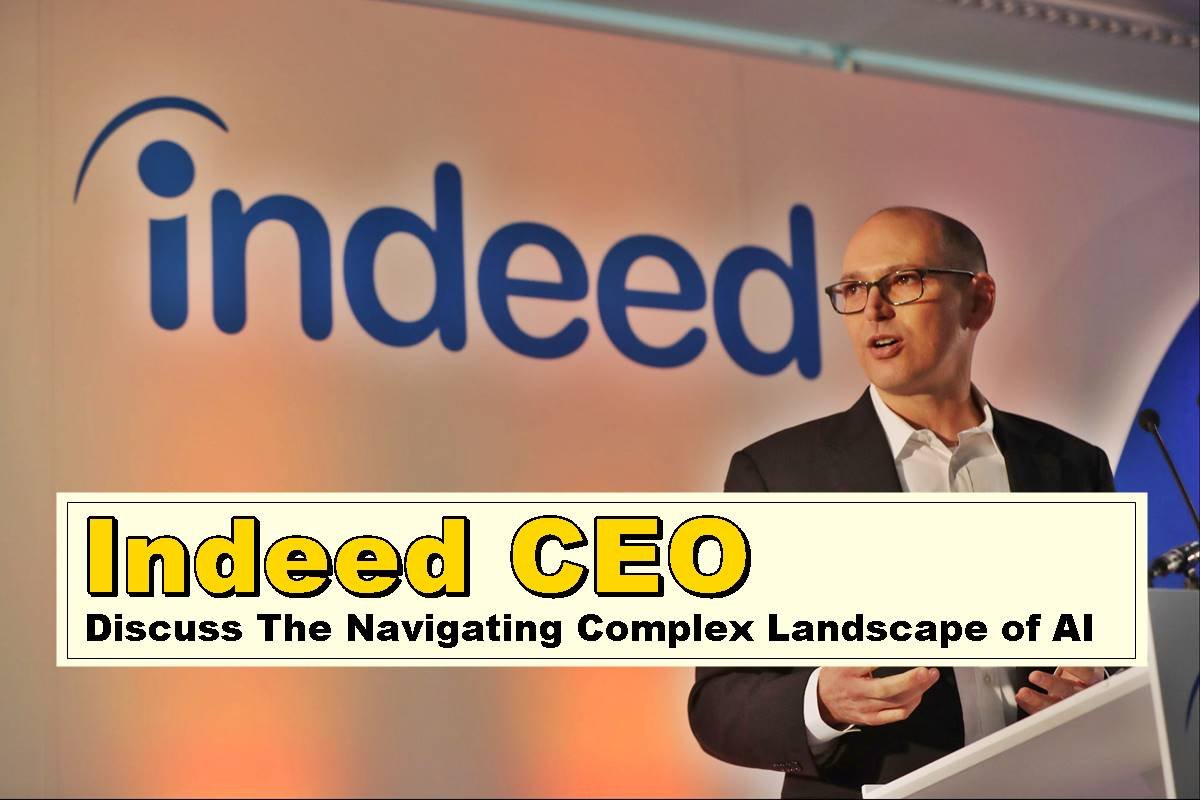In a recently held panel discussion with (Indeed CEO), a participant asked, “Are you worried or excited about AI?” My answer was “Yes.” I’m thrilled about AI, and I am apprehensive. Anything that has terrific power needs to be handled with extreme caution. The stronger the instrument will be, the more attention is required.
The Age-Old Jobs Debate
Let me start by addressing some issues. First, I’m concerned about jobs. Our mission at Indeed is to aid people in finding work. Every day, we think about the impact technology has on our lives. It is a matter of debate about how technology could aid or hinder jobs, traced to the beginning of the 19th century, when the artisan weavers in England, the Luddites, smashed machines that threatened to take over their careers. There is a chance that someone attempted to hit an object hundreds of years before because their work was in danger.
The waves of technological change and innovation have become more rapid
As the impact of the Industrial Revolution gradually accelerated over multiple generations, retail, travel, and music sectors were transformed due to the Internet within a decade. Thanks to AI, the students may learn skills in the college classroom that have become outdated when they finish their studies.
I want to take this chance to apologize to every tech evangelist. Tech evangelists use the phrase “disruption” when it’s a positive word. They promote new technology to “disrupt the travel industry” and “disrupt the transport industry.” Although consumers profit from convenience and savings over time, the number of jobs created increases, and more jobs are created; the result immediately will be the disruption of the lives of travel agents and taxi chauffeurs. “Luddite” is now used to denote “anti-progress”-but we must remember that the fears of their ancestors were valid.
While I’m concerned with the issue of jobs, I am also worried about deeper concerns concerning bias—data fuel AI. Data originates from human beings, and people can be flawed. This is especially the case in jobs: According to a well-known study in 2003, names with a black sound got 50% fewer calls in interviews than white names with similar resumes. If AI models are constructed from evidence with biases embedded in them that result from the model, it will replicate and increase the amount of bias.
READ MORE: Elon Musk Concerns About Surge in Retail Theft in America
Recent research illustrated the phenomenon graphically
In the event of being asked to design images related to the job title and crimes, The AI-generated AI-enhanced stereotypes regarding gender and race. The majority of white Americans are 70% of workers in fast food. However, 70% of the images depicted people with darker skin tones. Females comprise three-quarters of the doctors but only comprise 7 percent of image outcomes. In the study, more lucrative jobs were dominated by males and those with lighter skin tones, whereas the jobs with lower pay were occupied mainly by female-perceived workers and people with dark skin. Images created for “inmate,” “drug dealer,” and “terrorist” were also used to reinforce stereotypes.
Therefore, I am concerned. Many concerns with AI. Even with these issues, however, I am incredibly enthusiastic about it.
Recent advances in AI have been awe-inspiring
In the last couple of years, we’ve witnessed farmers using AI to eliminate diseases and pests, and even an artificial intelligence-powered brain implant enabled a disabled man to walk by using his brain. The most recent AI favorite, ChatGPT, has set new high standards for machine learning with its feats of alleged human-like intelligence. It scored within the 90th percentile of tests like the SAT, GRE, LSAT, and Uniform Bar Exam, scoring an average of 4 or 5 marks in 13 AP tests and passing the Introthrough advanced Sommelier Theory.
AI can also help people find work
Three hundred fifty million job-seekers visit Indeed every month. AI provides them with simple and quick connections to 30 million positions. Because of AI, the chance of being employed through Indeed is every 3 seconds.
Despite the fantastic innovation that is happening in our world, AI is still in its beginnings. If we hope to live long enough to reap the benefits of AI, it is essential to spend a lot of time and effort on the dangers.
The first step is to admit the fact that we are in trouble
The three elements of bias, toxicity, and hate can be mixed with signals of value, allowing AI to address real-world problems. To address this, we’ve established a responsible AI team whose goal is to build fair products for job-seekers and employers to reduce the unfair biases of our algorithmic products. Our team comprises sociologists and astrophysicists, and the approach is a combination of fairness assessments, tool-building education, and public outreach. We are convinced algorithms for fairness are not an issue that is solely technical and requires technological solutions. Fairness is a technological issue that is socio-technical-embedded within both the technology as well as the social systems that work with it.
This year, I had the opportunity to talk about the history of science with scholar the historian Dr. Ibram X Kendi, who explained this subject with astonishment: “I see the greatest threat in the notion that AI is not real, that humans didn’t create AI as such, and that humans are not able to incorporate their racist, homophobic beliefs and ethnically based ones into the AI created by them. If we, as humans, believe that artificial intelligence is essentially artificial, this will become a method to eliminate people due to their race, and that’s a legitimate argument.”
To create genuinely ethical AI systems

We have completely changed how we design them. For starters, we have to educate the current and future generations of tech professionals to be aware of the impact of technology and its impact on our lives. Alongside linear algebra and statistics, technologists must learn about philosophy, history, ethics, and the literature. An official code of ethics for AI practitioners, like an adaption of the doctor’s Hippocratic swearing oath, is the ideal starting base.
Importantly, it is necessary to transform the person constructing these structures.
We see people making crucial decisions daily in a room without representation of marginalized groups. Such groups are most likely to suffer the adverse effects of those decision-making processes. Women account for around 20 percent of all recent Computer Science Ph.D.s-and barely 6 percent of Ph.D. holders are Black or Latinx. As a straight white transgender male, Men like me shouldn’t be the only ones making choices impacting millions of individuals. There must be more than a representation system to solve AI’s significant problems. However, it is impossible to overcome these problems if the marginalized group does not get a fair seat at the same table.
The world is at an intersection of incredible innovation and disruptive technology. Great power comes with the responsibility of a lifetime. To ensure that AI can benefit humanity in general, we must be willing to accept our responsibility and make humanity the heart of AI.
